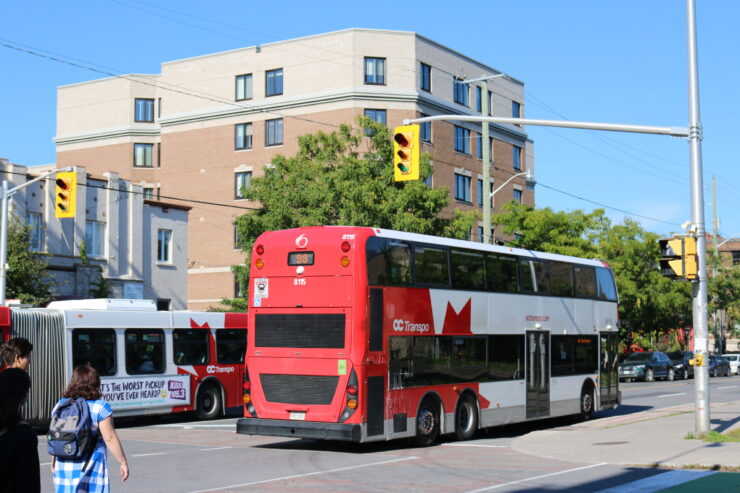PERIOD POVERTY IS A GROWING ISSUE — HERE’S HOW THE CITY OF OTTAWA AND PERIOD PACKS PLAN TO SOLVE IT
On Feb. 16, the City of Ottawa will launch a pilot project offering free menstrual products in four municipal facilities and community centres. This project aims to decrease the effects of period poverty in Ottawa.
Period poverty occurs when a womxn cannot afford menstrual products due to a lack of income. According to Plan International, one in three Canadian womxn have sacrificed “something else within their budget in order to afford menstrual products.”
Womxn who lack financial resources can also have difficulties accessing menstrual products. The Canadian Public Health Association estimates an average Canadian womxn will spend up to $6,000 in her lifetime on menstrual hygiene products.
But some Canadian women have it worse. In Nunavut, a pack of tampons can cost up to $20 making it even harder to afford.
The city undertook this project in collaboration with Period Packs. This non-for-profit distributes free menstrual products to 450 in need residents in Ottawa every month.
“Menstrual products are just as essential as toiletry products [like toilet paper],” explained Meghan White, one of the founders of Period Packs.
“It is not a luxury to be given [menstrual] products, and it is not a luxury to access them, they are essential items.”
Since it was founded in 2019, the non-for-profit distributed more than 89,068 menstrual products to community organizations such as the Ottawa Food Bank and various community housing agencies.
Another goal of Period Packs is to advocate for policy and education reforms about women’s health.
“It is so important to address the complexity of menstrual inequity,” added White. “[There is] a lack of education and the spread of misinformation about periods.”
Jenna Sudds, city councillor for Kanata North, initially introduced the motion last year to provide pads and tampons in public facilities.
During the first lockdown in Ottawa, “Period Packs independently secured funding with the city to provide [menstrual products] to women in some of Ottawa’s shelters,” said Sudds.
The services addressed this immediate need because some Ottawa services that previously provided period products closed due to the pandemic.
It was important to provide these products to women in need”, said Sudds. “Period Packs are doing some inspiring work.”
As reported by the Ottawa Citizen, feminine hygiene products are now available at community centres in Albion Heatherington, Overbrook, Sandy Hill, and Foster Farm. This one-year pilot project is estimated to cost $58,000.
Before the city can include more community centres in this project, they must identify which neighbourhoods are most in need of products. To do this, they rely on the neighbourhood equity index, a tool that city planners use to recognize disparities between Ottawa neighbourhoods.
If the pilot project is successful, it will gradually expand to include the whole city.
“My hope is that this project is wildly successful,” said Sudds. “I hope that we can eventually roll-out this project in all city facilities. That is the ultimate goal.”
Another person who is glad to see that the City of Ottawa is finally taking this step toward supporting this women’s health issue is professor Ivy Bourgeault, the research chair in gender, diversity, and the professions at the University of Ottawa.
Bourgeault said the project “is a start.”
“Let’s give the city credit. But this shouldn’t just be a ‘pilot project’ it should just be [the status quo].”
Bourgeault also shared her frustration with how womxn’s hygiene is not taken seriously by Canadians in general.
“We provide toilet paper to both men and women for free, don’t we? Women just happen to bleed, which means that they need products. It’s a hygiene issue and nothing more”, said Bourgeault.
“A woman’s period does not always come on a set day … [so if menstrual products were available everywhere] I think it would just reduce a lot of anxiety for women.”
For this reason, Bourgeault believes the U of O should follow the city’s lead and supply free menstrual products for students.
To solve public health issues that specifically pertain to womxn, “we need more women at the leadership decision table,” said Bourgeault.
She recommends students write letters to the U of O’s president, Jacques Frémont, and the associate vice-president in charge of infrastructure, Guy Levesque “to get the university to show leadership in the area of feminine hygiene.”
If you would like to donate menstrual products to womxn in need, please contact any of the following Ontario organizations.









